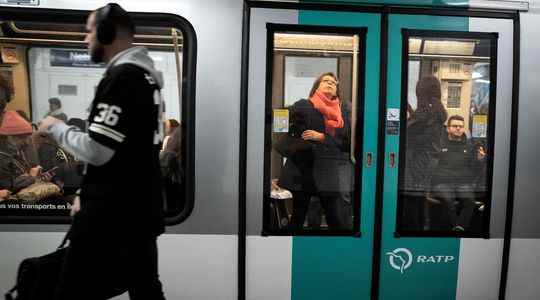“We invite companies to use teleworking as much as possible”. The reason for the tweet of the Minister Delegate for Transport, Jean-Baptiste Djebbari, is not the Covid-19 pandemic, as has been the case many times in recent months with such a request, but a strike by the RATP. The movement, which will take place on Friday, will greatly disrupt the network, the public company warned in its forecasts published on Wednesday.
Eight metro lines (2, 3 bis, 5, 7 bis, 8, 10, 11 and 12) will be closed and six others (3, 4, 6, 7, 9 and 13) will only be open during peak hours (6:30 a.m. to 9:30 a.m.; 4:30 p.m. to 7:30 p.m.), with traffic ranging from one train in two to one train in four. Only lines 1 and 14, automatic, will operate normally. The RATP advises against using it because of the “risk of saturation”. Also affected, the RER A and B will only run between 6:30 a.m. and 8:30 p.m., with only one train in two during peak hours and one in three during off-peak hours. Same inconvenience for trams, whose average frequency will be reduced to one in three trains. And the buses, on average two out of three, but “with variations depending on the sector and possibly going as far as the closure of a few lines”.
Salary increase considered insufficient
The massive strike movement is supported by all the representative trade unions (CGT, FO, UNSA, CFE-CGC) and almost all the others (Solidaires and La Base). They protest against the proposals of the management of the RATP, deemed insufficient, on the issue of a salary increase for employees. As part of the mandatory annual negotiations (NAO), the Parisian transport authority would have advanced, according to the unions, an increase of 0.4%.
“A provocation”, they say, as employees responded throughout the pandemic to ensure continuity of service. Management refutes and claims to have planned a 2.7% increase : 0.4% of transverse measures affecting all employees, but also increases for advancement and seniority (1.8%), and for categorical measures (0.5%). The management also evokes a profit-sharing which “could be higher than that of previous years”. It was, on average, 1000 euros net.
The CGT, the group’s leading union, is asking for a 3% annual increase over the next three years. What compensate for rising inflation and prices which “explode for rents, electricity, gas, heating oil and fuel”. Another negotiation meeting, within the framework of the NAO, is scheduled for Friday morning, the day of the strike.
